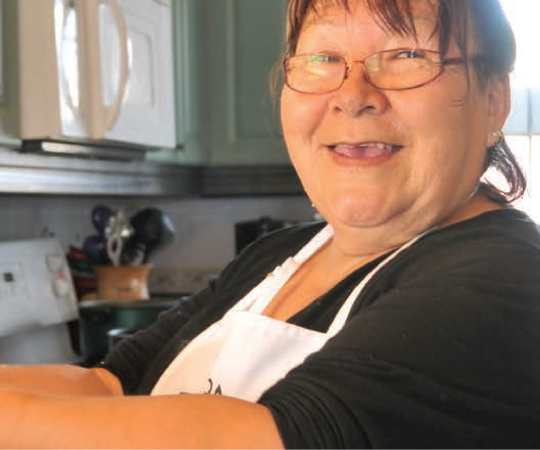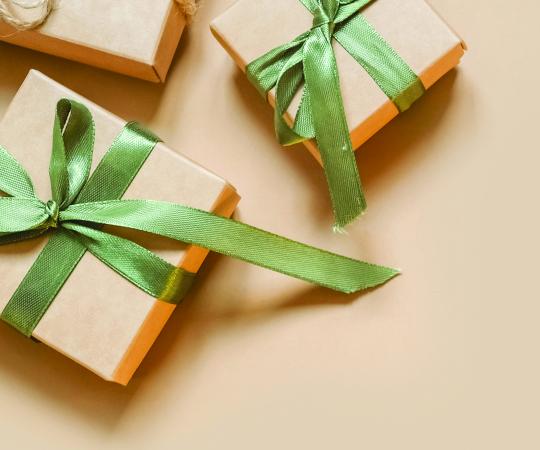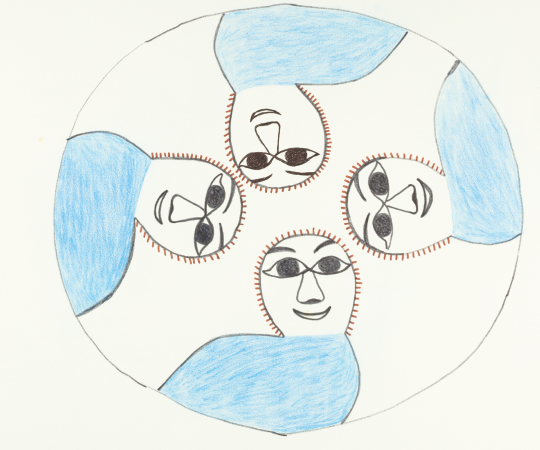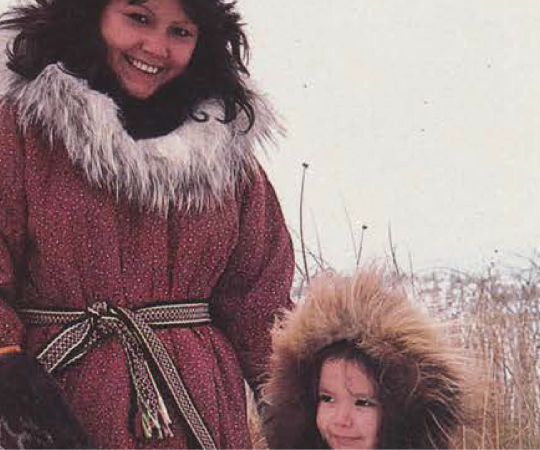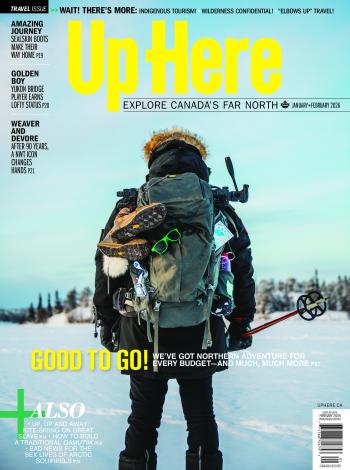One warm July morning, Elijah Bekk woke up to find his arms swollen. His fingers, he noticed, were going numb. Soon, he was unable to close his hands into a fist.
The previous day, the 19-year-old from Faro, Yukon had been building a fish weir as part of his summer job, standing in icy cold water for hours at a time. This, he would later find out, affected the nerves in his arms, causing what’s called a ‘non- freezing cold injury.’
Four years later, negative temperatures still cause his arms to swell up. And when he strums his fingers across the thick strings of his guitar, searing pain runs up his arm. “[It] feels like it’s on fire and kind of like it’s being crushed all at the same time,” he says. For the aspiring indie rock musician, having to abandon his passion was even more painful.
Growing up in a family of seven, music constantly filled Bekk’s home. His father played piano and encouraged his chil- dren to learn instruments. Bekk first picked up a set of drum- sticks and then the guitar, attending music camps near Faro in the summer to improve his skills.
When he was 14, Steve Slade—a Yukoner who teaches music in school and runs camps in the summer—recognized his chops. “We were playing something together and then at the end of the camp, he sat down with me and was like, ‘You know, this is something that you could actually do for a living. Like, you’re good enough that this is something you should try and pursue.’”
Bekk knew it wouldn’t be easy, but he was willing to give it a try. For Grade 12, he moved in with his sister in Olds, Alberta to attend a high school with a well-regarded music program, before attending Selkirk College’s Contemporary Music and Technology Program. “I felt good about where my music was heading while I was at college. I was filling in a lot of gaps in my musical knowl- edge and really starting to find my sound as a guitarist,” he says.
Then Bekk suffered the injury and the music went silent. “We tried everything. We tried all these kinds of crazy nerve blocker drugs to help with the pain,” he says. Nothing worked. Bekk saw specialist after specialist—the fourth one told him it was “time to accept that you’re not going to get better and you’ll probably lose the use of your hands forever,’” he says. “That hit me really hard and that felt like the end of the road for me.”
Bekk took a leave from college and moved back to Faro, where his family took care of him because he could hardly use his hands. His mother put his guitars away to ensure he wouldn’t be tempted to play. “I’d fully given up on life at that point,” he says.
After months of struggling with his injury—and the depres- sion it caused—Bekk decided he wasn’t ready to give up. He flew to Hamilton to meet with a chiropractor and acupuncturist, Dr. Anthony Lombardi, who put him on a strict diet and rehabilita- tion regiment. “He looked me dead in the eyes and said, ‘I prom- ise I will make you better.’ I think just having somebody believe that I could get better was what helped things to change.”
With a timer set for five minutes a day, Bekk could pick up the guitar again. It was painful and disheartening at first, but he kept going. Eventually he was able to play for 15 minutes a day, then an hour. A year later, he performed his first concert since the injury. “My best friend flew up from Vancouver to play a show with me because it was that special of an occasion,” he says.
Bekk could barely contain his excite- ment. But he was also nervous. “I hadn’t been on stage in a long time and my hands were still not the most trustwor- thy,” he says. Family and friends turned up for the show—some had driven the four hours from Whitehorse to Faro. Bekk pushed back the butterflies once the show began to put on the best per- formance he could. “Everyone made a big deal about the show. It was a really special thing.”
This June, Bekk stepped onto the stage outside Haines Junction’s Village Bakery and Deli. With a crowd seated at picnic benches and around tables, Bekk pulled the strap of his guitar over his shoulder and set his dark painted fingers on the strings, belting out somber lyrics over a playful tune—a staple of his song-writing style.
During a break between songs, he brought attention to the thick black sleeve he wore over one arm—contrasted against his floral button-up shirt—and explained that it helps regulate the pain from his injury. Bekk also wove in stories about his life, telling the crowd about his injury, the depression that followed, and his commitment to sobriety. Each song danced around those themes, allowing the audience to feel a little closer to Bekk with every track.
Lately, the 24-year-old has taken some major steps with his music. He teaches music production classes in Whitehorse, where he now lives, as he continues to write songs. He says he has enough to fill three to four albums. (His first album is set for release in the spring of 2023.)
Bekk was also recently selected as one of five winners of the RBC Emerging Mu- sician Program, after competing against hundreds of other promising Canadian musicians. This award provided him with funding to create a music video and gave him an opportunity to receive mentorship from professional artists to help take his career to the next level.
But Bekk says he’s most proud of simply being able to perform again. “My biggest achievement would be learning to play again and being able to have a band and do all those things because I was told that I would never be able to do that again,” he says. “The thing I feel the best about is knowing that I did that.”

